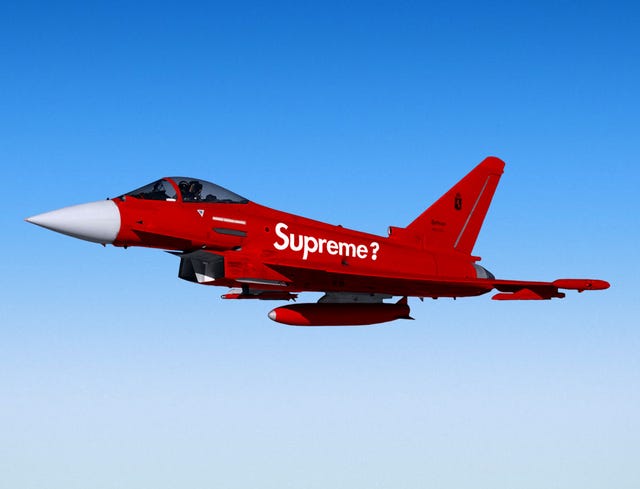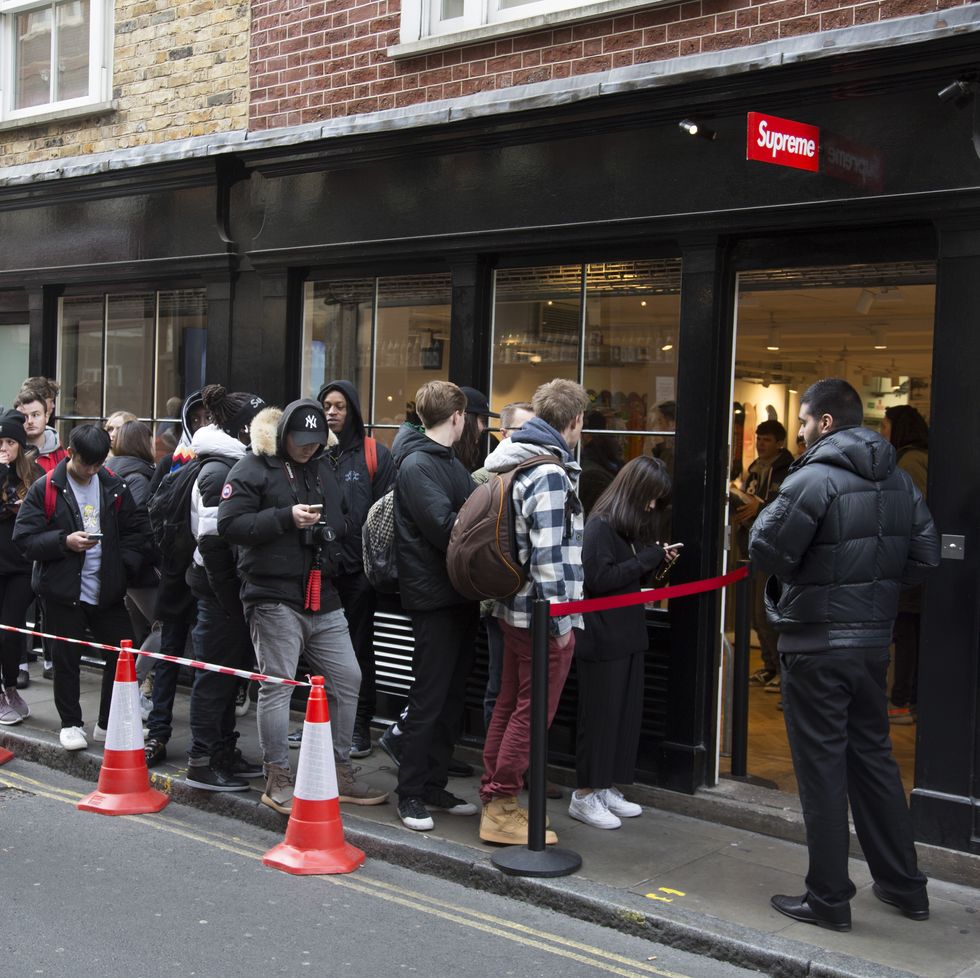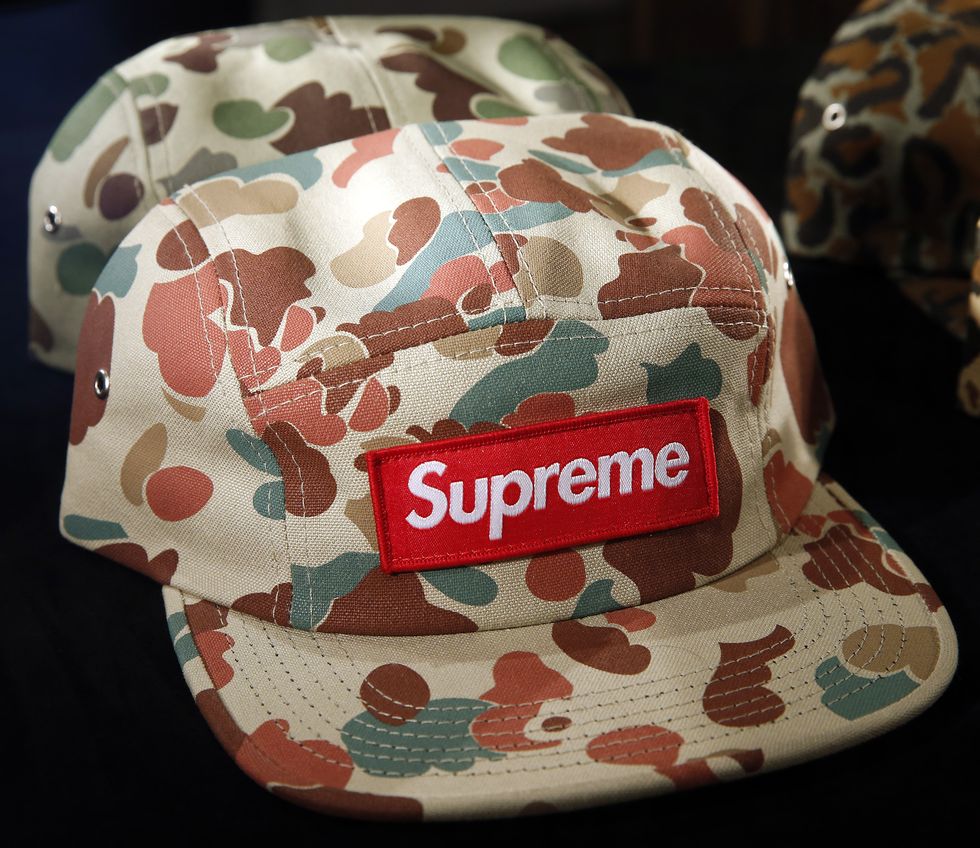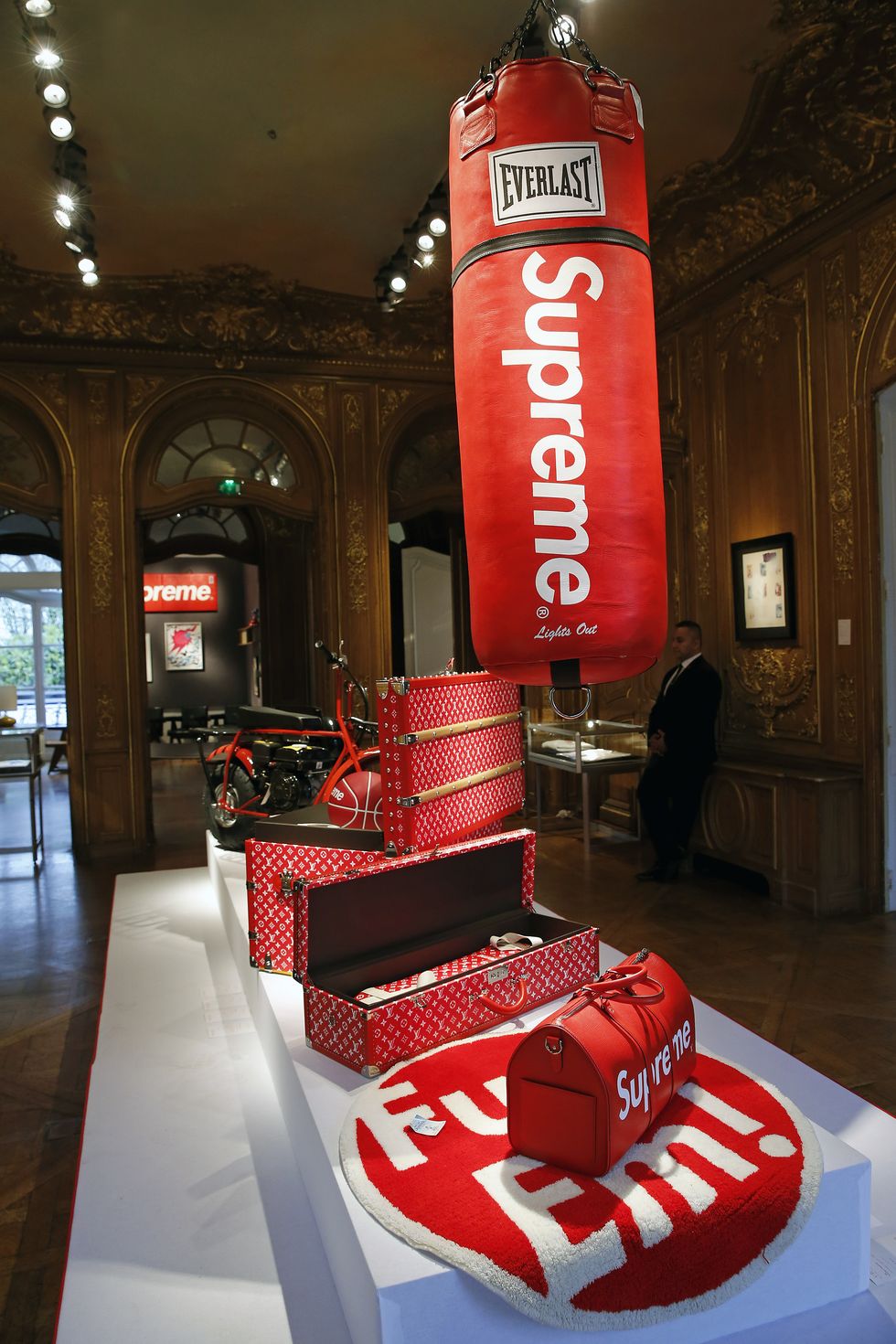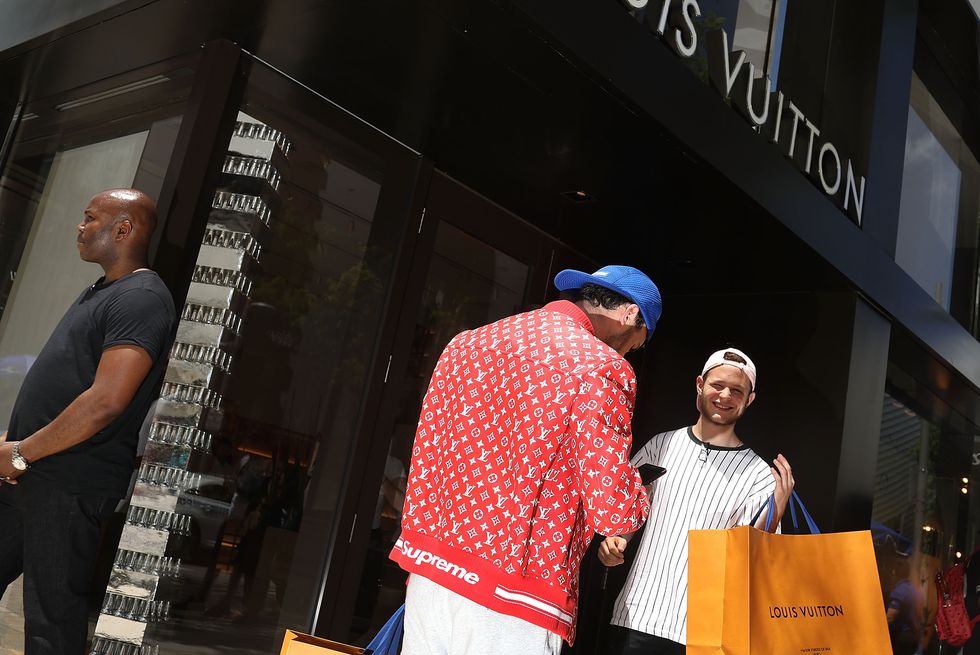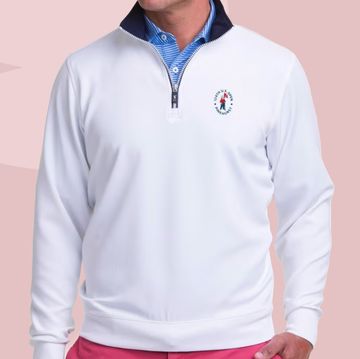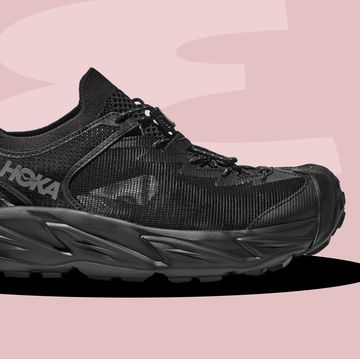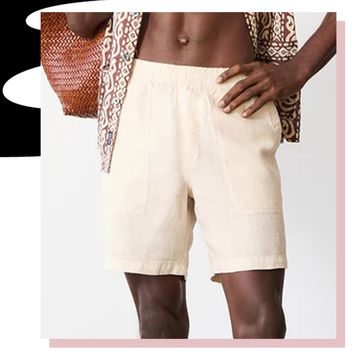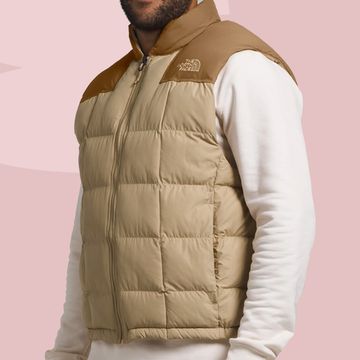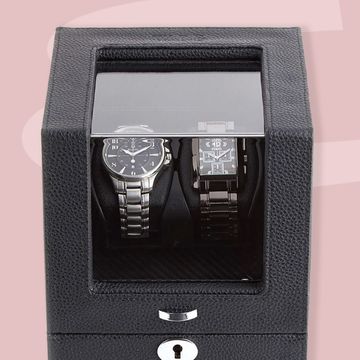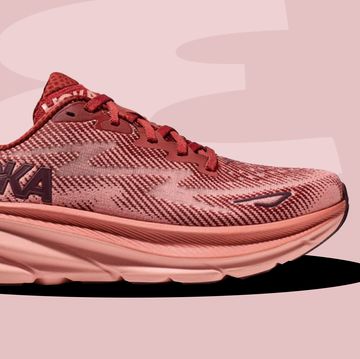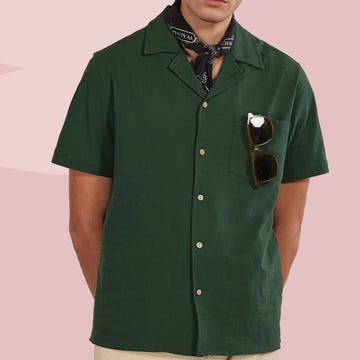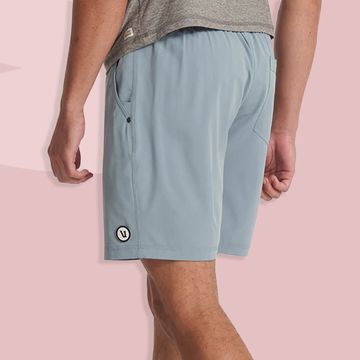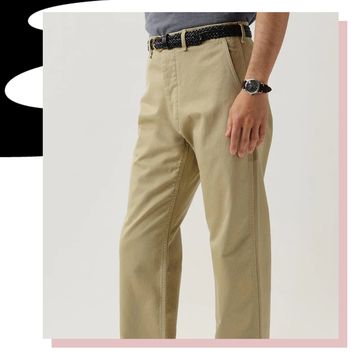As of November 2018, the Supreme box logo is officially the most powerful mark in streetwear. I didn't need a consumer data-analysis report to tell me this. Any logo that can compel 14-year-old American boys to get up at four o’clock in the morning to stand in line for 12 hours on a cold Lower Manhattan sidewalk is, without a doubt, the most powerful mark in human history.
But recently, we also learned that the power of this streetwear juggernaut takes more forms than one. As political comedian Hasan Minhaj pointed out in an episode of his Netflix show, Patriot Act, the largest investor in Supreme is none other than the Carlyle Group—arguably one of the shadowiest of players in international private equity, which is already a field so shadowy it’s basically the Mordor of finance.
The Carlyle Group purchased a 50 percent stake in the business from founder James Jebbia in 2017 for a whopping $500 million. This valued Supreme at around $1 billion overall—an eye-popping number for a brand with only 11 brick-and-mortar retail locations worldwide.
In his trademark style of wide-eyed, manic-grinning indignation, Minhaj masterfully mapped out the Carlyle Group’s spiderweb of morally-questionable investment relationships—most notably, a 23 percent stake in the American electronic hardware distributor WESCO International, formerly a part of the Pittsburgh-based manufacturing colossus Westinghouse. WESCO maintains a contract with London-based BAE Systems, which, apart from being a complete waste of good branding for a dating app, is the largest defense and security contractor in Europe. In July of this year, WESCO’s aircraft division renewed a multi-year agreement with BAE to continue providing supply-chain support for the latter’s manufacture of the Eurofighter Typhoon, one of the world’s most advanced combat aircraft.
According to Gustavo Schwed, a professor of management practice at New York University’s Leonard N. Stern School of Business, investments in the aerospace sector have been par for the course with the Carlyle Group for years. “They were investing in aerospace when the industry was not yet popular with other private equity firms,” he tells Esquire, explaining that, historically, private equity has been hesitant to do business in aerospace and defense because of something called “customer concentration risk.” This occurs when a relatively small group of customers, such as governments, are making large purchases (for, say, combat aircraft), potentially effecting the whole health of a company.
“Most private equity firms lacked the insight into how those purchasing decisions were being made, as these decisions often involved a political dimension,” Schwed says. He posits Carlyle’s origins in Washington, D.C., may have had something to do with its early willingness to make investments in aerospace and defense.
If we look at a defense company like BAE as Supreme—and the Eurofighter Typhoon as its box-logo hoodie—the Kingdom of Saudi Arabia has been lined up to cop for more than three decades.
The Saudis have been purchasing BAE’s planes to outfit their air force since implementation of the controversial al-Yamamah arms deal, negotiated between British Prime Minister Margaret Thatcher and the Saudi King Fahd in 1985. As of 2015, the Kingdom possessed more British-made aircraft than the entire British Royal Air Force. About half of those are BAE products, including Typhoons.
Also in 2015, the Kingdom launched a military intervention in the civil war in Yemen, its neighbor to the south. Still ongoing, the Saudis’ involvement is seen by many as a part of a proxy conflict with the Islamic Republic of Iran, their chief geopolitical rival in the Middle East. The war has been devastating, and its consequences continue to be wide-reaching. It arguably precipitated the murder of journalist Jamal Khashoggi, a vocal critic of the Saudi-led intervention, by agents of the Kingdom in October of 2018.
The United Nations estimates that more than 16,000 civilians have been killed or injured since the war began, the vast majority by airstrikes. The coalition of nine North African and Middle Eastern countries led by Saudi Arabia is the only active faction in the conflict utilizing military aircraft. Other observers estimate the death toll to be even greater—as high as 50,000 since the war began. And international-aid group Save the Children estimates as many as 85,000 Yemeni children have starved to death thanks to a Saudi blockade on rebel-held Yemeni ports.
Indeed, Saudi Arabia’s actions in Yemen have been so widely reviled that even President Trump’s Republican allies in the United States Senate have publicly rebuked Crown Prince Mohammed bin Salman, de facto ruler of the Kingdom. They also voted to end U.S. military assistance for the war.
Neither the Carlyle Group, Supreme, WESCO, nor BAE responded to requests for comment.
If Supreme’s financial entanglements—however remote they might be—with defense contractors and Middle Eastern autocracies don’t qualify as downright evil, they at least raise some stomach-churning moral questions about the interconnectedness of global industry. Is buying products emblazoned with that (perhaps appropriately) blood-red box logo the equivalent of putting money in the pockets of people who might profit from war?
“This line of thinking could be extended infinitely,” Schwed cautions, pointing out that a good number of private equity firms, hedge funds, and brands have ties to not just the aerospace industry and its inevitable dovetailing with war, but other industries that could be perceived as net harmful: fast food, Big Pharma, and tobacco, to name a few.
“A better question might be, is it immoral to invest in aerospace technology when it’s inevitable that some of that money may go to legitimate defense efforts, and some of it may go to bad guys?” Schwed says. Any firm invested in companies like Boeing or Lockheed Martin could field the same criticisms faced by Carlyle, after all.
Perhaps, with regards to aerospace investments, we are on the verge of a shareholder reckoning not unlike what we’ve seen with fossil-fuel and palm-oil divestment campaigns. If nothing else, highlighting the ties between popular brands and industrial-complex casualties like the Yemeni people may encourage the average shopper to cultivate some financial literacy and consumer politics.
For the time being, such a hope may be wishful thinking. Minhaj’s exposé has been making rounds on social media for a few weeks now, and lines outside Supreme stores from Tokyo to New York don’t appear to be shrinking. Some might say it’s too much to ask of the average hypebeast to parse the private-equity complicities of his favorite brands. They’ll say doing indirect business with unsavory characters is a necessary evil of buying cool things.
But ignorance doesn’t seem to be a viable excuse here; at least some Supreme fanboys are obnoxiously self-aware of the company’s potential moral compromises. After his episode on the brand aired, Minhaj launched “Carlyle Supremium,” a limited line of T-shirts bearing box-logo parodies with slogans like “Private Equity,” “Defense Contractor,” and “Barbara Kruger Was Right” (a reference to the anti-consumerist artist whose work James Jebbia is accused of appropriating). The original run priced one hundred shirts at $7.75 each, which quickly sold out. Shortly after, in an ironic demonstration of scarcity economics, the shirts began appearing on streetwear resale sites like StockX for as much as $128 — an approximately 1,500% markup.
In the words of Ms. Kruger: “What a ridiculous clusterfuck of uncool jokers.”
